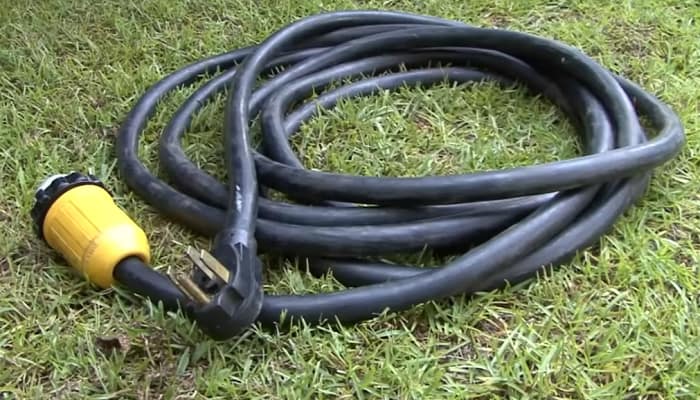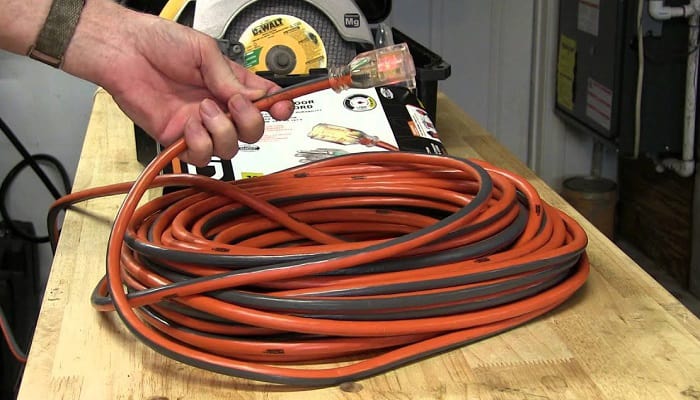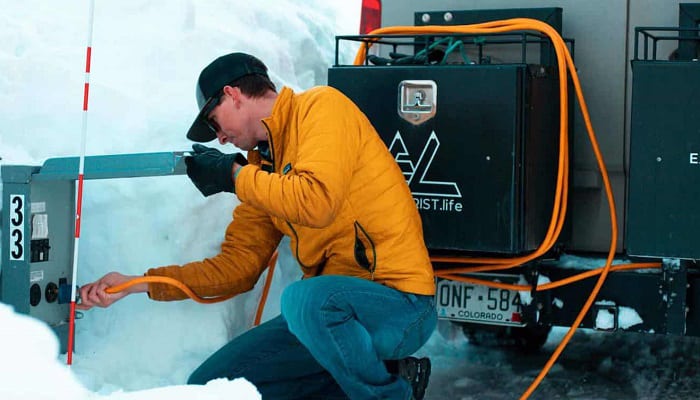If you are an RV owner or you frequently rent one for travel or camping, then you know how important it is to get the right gauge extension cord. However, not many people know exactly how to pick the right one. This is why, in this article, we will help you figure out the proper gauge extension cord for your RV.
Table of Contents
What does “Guage” Mean?
Before we proceed to figure out what is the most suitable gauge extension cord is for your RV, let us first understand what “Gauge” means.
Gauge refers to the numerical rating of the diameter of copper wire. The longer the cord or wire is, the higher the voltage drop is as well. This is why longer extension cords often have lesser capacity compared to those that have the same gage number.
The tinies gauge for an extension cord is 14 AWG. It’s recommended length should be 2 meters or shorter. One the other hand, the thickest one in extension cords is 10 AWG.
What Gauge Extension Cord do I need For an RV?
Now that you have the basic knowledge of what gauge is, we can now discuss what the ideal gauge extension cord is for an RV according to its power:
- 15-amp RV
15-amp powered RVs are typically small, so they do not need a lot of power. They use the same power capacity as the ones that you find at home. If you have this type of RV, it is ideal to use a 10 AWG extension cord, especially if you need it to be longer so that it conducts power properly.
- 30-amp RV
For mid-size RVs that have a 30-amp circuit, using a 10 AWG extension cord will do as well.
- 50-amp RV
50-amp RVs are usually hotels on the road. With that said, they typically have plenty of appliances fitting hence would require more power.
For this big circuit RVs, you may need to use a specialize extension cord for it, such as the TWB Smart RV extension cord. It is heavy duty and weatherproof also.
Is it Important to Use the Right Gauge Extension Cord?
Yes, it is essential to use the right gauge extension cord, especially for RVs. Here are some reasons why:
- Allows electronics to function effectively
The gauge of your extension cord should be equal or higher than the requirements of your appliances. If your RV has a 30 amp circuit, getting one that can accommodate or comparable to that means that the flow of electricity is just right, and there is no risk of overheating.
- Prevents overheating and overloading
When the electrical load is high, and the AWG or your extension cord is too low, the likelihood of overheating is high, especially if it is long. This is why, to prevent that, you must pick the right gauge extension wire.
Safety Reminders
When dealing with extension cords, there are several safety reminders that you should follow to avoid unfortunate incidents such as electrocution or fire. Here are some of these reminders:
- Keep your extension cords organized.
Extension cords can be significant trip hazards, primarily when they are not organized well. This is why you should always keep them in a roll or place them far from walkways. Moreover, doing this will also save you the pain of untangling it.
- Avoid yanking extension cords.
It is not a good practice to yank extension cords because you might damage the sockets or the wire itself.
- Make sure your extension cord is fit for outdoors.
If you are using an extension cord for RVs, then you are more likely going to connect it to power sources exposed to the weather at camping grounds. This is why your extension wire should not only have the right gauge but a waterproof rating as well.
Conclusion
The right gauge extension cord for an RV depends on its power circuit. 10 AWG extension cords are typically ideal for heavy-duty use, so they are compatible with RVs, which are below 30-amp circuit. If you have a big 50-amp circuit RV, you may require a specialized and more heavy-duty extension cord.
Finding the best gauge extension cord for your RV is not that hard. However, it is essential to remember the following takeaways:
- Know your RV power circuit
- Do not use low gauge extension wire for your RVs

Hi, I am Tom Hank, an RV-er since 2014. Back then, I started without much help. As you can imagine, the struggles are endless. But now, you do not have to begin your adventures knowing next to nothing about RV lives.





